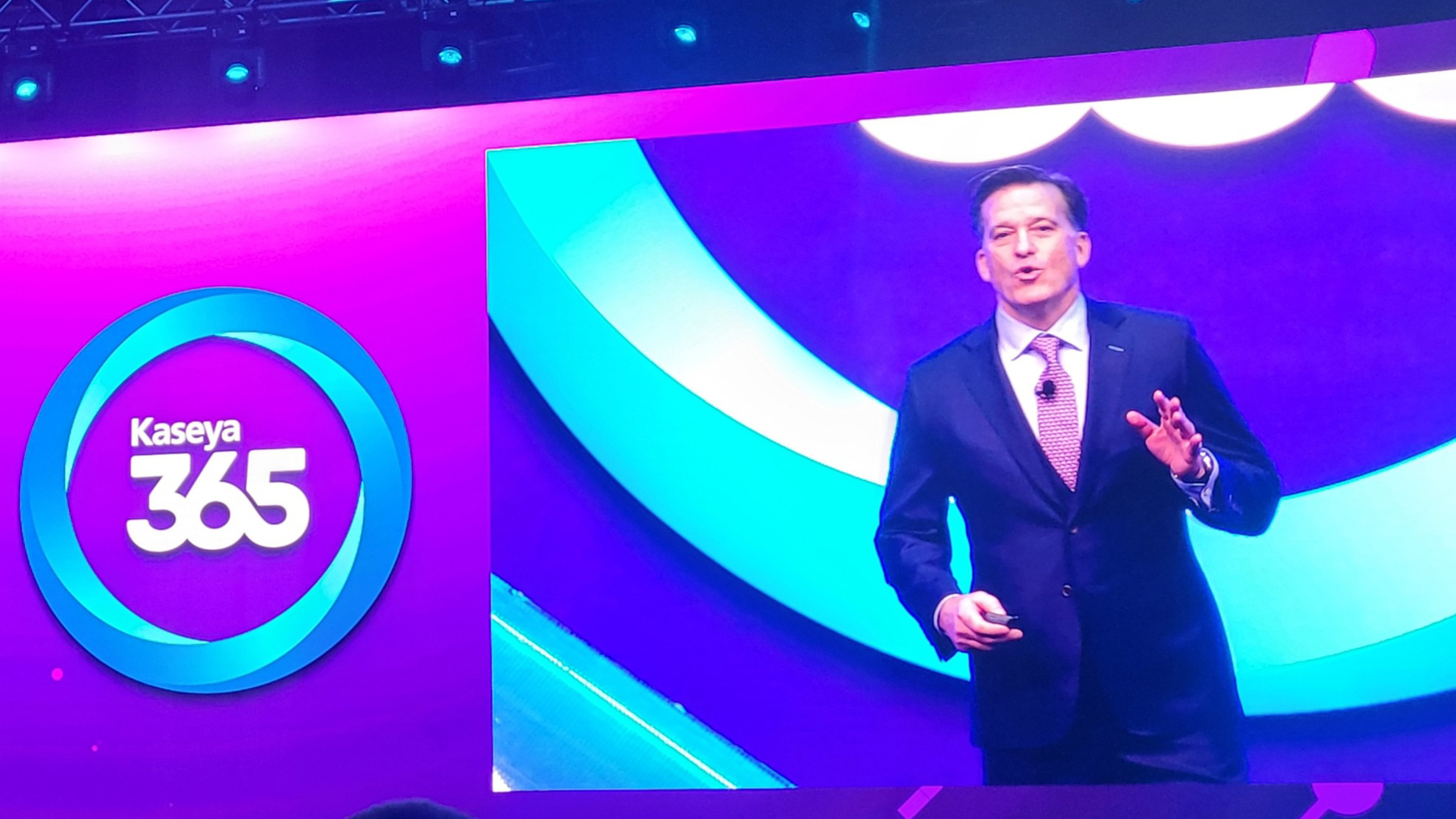At its Worldwide Partner Conference this week, Microsoft will tell channel pros to expect fewer changes and a greater focus on execution in the year ahead.
By Rich Freeman
Let’s go to work. That’s the message Jon Roskill, head of Microsoft’s Worldwide Partner Group, plans to deliver at the company’s Worldwide Partner  Conference in Los Angeles. The past year has been a time of significant transition, he observes, marked by the rollout of an extensively revamped partner program and a slew of new cloud computing initiatives. Now it’s time to execute.
Conference in Los Angeles. The past year has been a time of significant transition, he observes, marked by the rollout of an extensively revamped partner program and a slew of new cloud computing initiatives. Now it’s time to execute.
“We’ve built this tremendous foundation,” Roskill says. “Next year I would characterize as a year of stability and building off that foundation.”
That will come as welcome news to Microsoft partners like Dave Sobel, CEO of Evolve Technologies LLC, a managed services provider and IT consultancy in Fairfax, Va. “They’ve changed a bunch of things, and we’re still sort of shaking it all out,” he says.
Chief among those changes has been the shift in how Microsoft doles out its Gold Certified and Silver Certified partner credentials. Gone are the days when collecting one of those coveted designations for your entire company was relatively simple. Now, in an effort to make certifications harder to win and therefore more valuable to possess, Microsoft requires that partners earn Gold or Silver status in specific solution competencies with steep requirements.
“The competency structure is stricter and a little bit more demanding than previously,” Sobel says. “It’s been harder than a lot of us anticipated.”
Roskill freely acknowledges that many companies have found adapting to the new competency framework tough going. “[It] has definitely been some work for partners to get through,” he says. “We’re asking them to really make a declaration on which businesses they’re going to major in to qualify.” Even so, Roskill adds, feedback from partners that have completed the process has mostly been positive.
Indeed, some partners are upbeat on the new competency system. “I think it’s a good change,” says Jamison West, CEO of Arterian, an MSP and IT advisory firm in Seattle. “Qualifying for Gold is definitely more difficult, but it needs to be.” Under the old framework, West notes, his company achieved Gold status back when he had only one engineer on staff. “That was kind of silly,” he says.
For other channel pros, however, the jury is still out on the new framework. The greater exclusivity attached to Gold status does increase its cachet, observes Michael Cocanower, president of itSynergy, a solution provider and MSP in Phoenix. But many of the new competencies are more suited to enterprise partners than the SMB channel, he says, and he’s still sorting through which ones make sense for his company to pursue. “It’s a little unclear to us,” Cocanower says.
A KEY COMPLEXITY
Needless to say, there’s far less ambiguity surrounding Microsoft’s aggressive push into cloud computing, which has already inspired more than 50,000 partners worldwide to sign cloud reseller agreements with Microsoft. Roskill expects that figure to grow steadily—if perhaps more slowly than he’d like—over the months ahead. Accustomed to the immediate gratification of on-premises software sales, he says, some partners have had trouble appreciating the long-term value of building an annuity revenue stream.
A bigger concern for many channel pros, however, is Microsoft’s insistence on maintaining a direct billing relationship with buyers of its cloud-based services. “That’s one of the reasons why we will rarely talk about [Microsoft cloud products] as an offering with customers,” Cocanower says. “I don’t like other people involved in my cash-flow stream, I don’t want my customers getting multiple invoices from multiple vendors, [and] I don’t like other people telling me what my margins are going to be.”
Don’t expect any changes on the billing front soon, however, Roskill warns. Microsoft has studied the matter thoroughly and concluded that building a billing infrastructure sophisticated enough to interface with Microsoft’s cloud back end is too complicated and expensive an undertaking for most partners to handle. “That’s the part that’s become the key complexity to allowing partners to resell our cloud services to customers directly,” Roskill explains. “It would be a substantial investment, likely more than the partners want to make at this stage.”
Sobel, for one, is skeptical of that argument. “They’re not the only people that have had billing issues and billing interfaces, and certainly the rest of the channel seems to find ways to make it work,” he says. “If it’s important to me, I’ll find a way to solve the problem.” West, meanwhile, questions why Microsoft can’t simply send invoices to the partner of record on a cloud account instead of the customer. That way he could make payment on his client’s behalf and simply roll the expense into their regular monthly bill. “There’s no hardship on Microsoft’s part from an operational or administrative perspective,” he says. “I don’t understand what the difference is.”
Roskill points to another option worth considering—working with one of Microsoft’s cloud syndication partners, such as Renton, Wash.-based Parallels Holdings Ltd. Syndicators enable partners to bundle, provision, and manage cloud-based services, including Microsoft’s new Office 365 productivity suite, without building their own hosting infrastructure. Better yet, they offer “white-label” billing, so clients make purchases and receive invoices solely through their VAR. Still, while West finds the concept intriguing, he worries about syndicators making sales approaches to his clients, and wonders who gets credit with Microsoft for the revenue his customers generate. “The only way vendors measure your partnership is how many dollars you spend with them,” he notes.
Though concerns like that are sure to generate plenty of additional back and forth between Microsoft and its partners, they haven’t dampened Roskill’s enthusiasm for a job he entered just 12 short months ago. “It’s been quite a year,” he remarks, and with the new partner program and cloud platform now in place, he expects the next one to be even better both for Microsoft and its channel. As Roskill puts it, “We are set up to go out and win together, make lots of money together, and take market share together.”
RICH FREEMAN is senior contributing editor of ChannelPro-SMB.
See related story: Meet Jon Roskill
For More Information
Microsoft Worldwide Partner Conference Home page for the 2011 event, July 10 to 14 in Los Angeles. www.digitalwpc.com
Parallels Cloud syndication services. www.parallels.com/products/automation/operations













